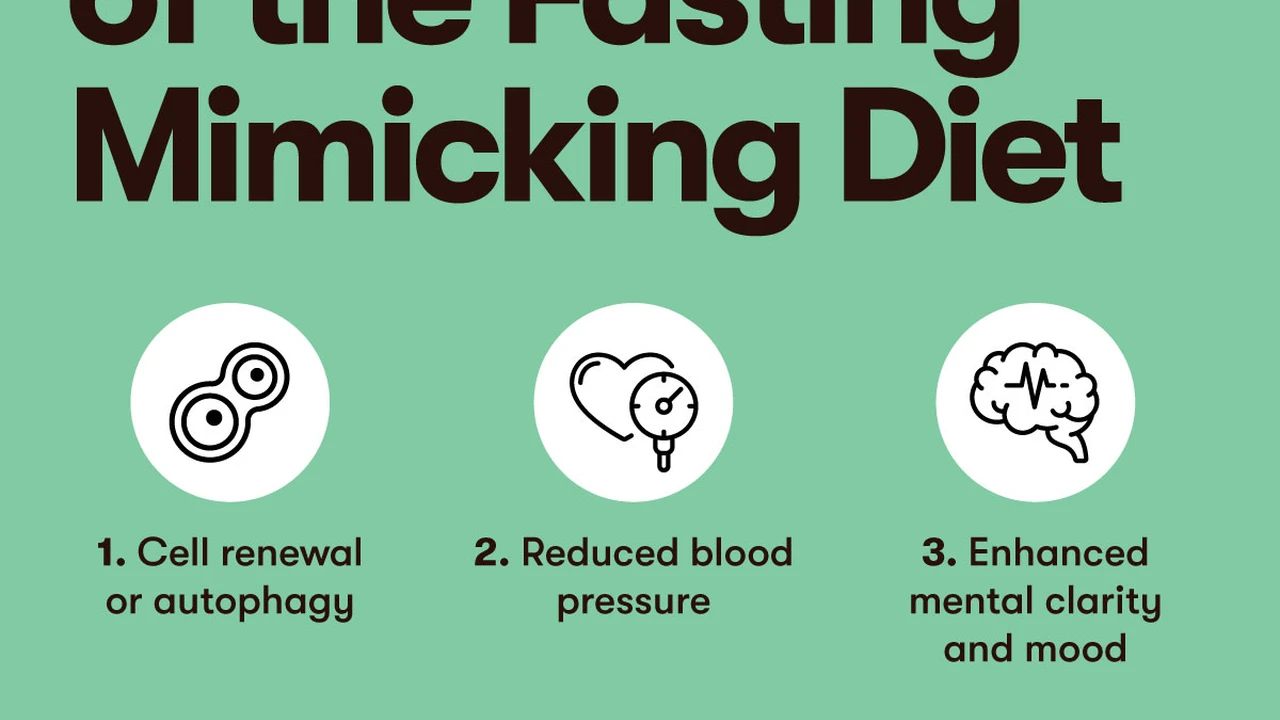3 Essential Habits for Longevity and Vitality
Cultivate longevity and vitality with these three essential habits. Simple yet powerful practices for a longer, healthier life.

3 Essential Habits for Longevity and Vitality
The Power of Consistent Movement and Exercise for Longevity
When we talk about living a long, healthy life, consistent movement and exercise are absolutely non-negotiable. It's not just about looking good; it's about feeling good, maintaining cognitive function, and preventing chronic diseases that often come with aging. Think about it: our bodies are designed to move. From our hunter-gatherer ancestors who were constantly on the go, to modern humans who often find themselves glued to a desk, the fundamental need for physical activity hasn't changed. What has changed is our environment, making it easier than ever to be sedentary. But here's the good news: incorporating movement doesn't have to mean spending hours at the gym or becoming an elite athlete. It's about consistency and finding activities you genuinely enjoy.
Why Movement Matters for a Longer, Healthier Life
Let's break down why regular physical activity is so crucial for longevity. First off, it's fantastic for your cardiovascular system. Exercise strengthens your heart, improves blood circulation, and helps maintain healthy blood pressure and cholesterol levels. This significantly reduces your risk of heart disease, stroke, and other related conditions. Secondly, it's a powerful tool for managing weight and preventing obesity, which is a major risk factor for type 2 diabetes, certain cancers, and joint problems. Beyond that, exercise builds and maintains muscle mass and bone density, which are vital for preventing falls and fractures as we age. It also improves balance and coordination, further reducing injury risk. And let's not forget the mental health benefits: exercise is a natural mood booster, reducing symptoms of depression and anxiety, and improving cognitive function, including memory and focus. It even helps with better sleep, which is another cornerstone of longevity.
Practical Strategies for Incorporating Daily Movement
So, how do you actually make consistent movement a habit? Start small and be realistic. If you're new to exercise, don't aim for an hour-long intense workout every day. Begin with 15-20 minutes of brisk walking, and gradually increase the duration and intensity. The key is to find activities you enjoy, because enjoyment leads to consistency. Love dancing? Join a class. Prefer the outdoors? Hiking or cycling could be your thing. Even simple changes like taking the stairs instead of the elevator, parking further away, or walking during phone calls can add up. Consider investing in a fitness tracker to monitor your steps and activity levels; seeing your progress can be incredibly motivating. Many smartwatches and fitness bands offer features like step counting, heart rate monitoring, and even reminders to move. For example, the Fitbit Charge 6 (around $159.95 USD) is a great all-rounder for tracking daily activity, sleep, and heart rate. If you're looking for something more advanced with GPS for outdoor activities, the Garmin Forerunner 265 (around $449.99 USD) is a solid choice. For those who prefer a more integrated health ecosystem, the Apple Watch Series 9 (starting around $399 USD) offers comprehensive health tracking, including ECG and blood oxygen monitoring, making it a premium option for overall wellness.
Another strategy is to schedule your workouts like any other important appointment. Put it in your calendar and treat it as non-negotiable. If you struggle with motivation, find an exercise buddy or join a group class. The social aspect can make exercise more enjoyable and keep you accountable. Remember, the goal isn't perfection, it's consistency. Some movement is always better than no movement.
Optimizing Nutrition for Cellular Health and Longevity
Beyond movement, what we put into our bodies plays an equally critical role in how long and how well we live. Nutrition isn't just about fueling our bodies; it's about providing the building blocks for cellular repair, reducing inflammation, and protecting against oxidative stress – all key factors in the aging process. Think of your cells as tiny engines; they need the right kind of fuel to run efficiently and prevent breakdown. A diet rich in whole, unprocessed foods can significantly impact your cellular health and, by extension, your longevity.
The Role of Whole Foods in Anti-Aging and Disease Prevention
Focusing on whole foods means prioritizing fruits, vegetables, whole grains, lean proteins, and healthy fats. These foods are packed with vitamins, minerals, antioxidants, and fiber, all of which work synergistically to support optimal health. Antioxidants, found abundantly in colorful fruits and vegetables, combat free radicals, which are unstable molecules that can damage cells and contribute to aging and disease. Fiber, found in whole grains, legumes, and produce, supports gut health, which is increasingly recognized as central to overall health and longevity. A healthy gut microbiome can influence everything from immunity to mood to nutrient absorption.
Conversely, a diet high in processed foods, refined sugars, and unhealthy fats can accelerate aging and increase the risk of chronic diseases. These foods often lead to chronic inflammation, oxidative stress, and insulin resistance, all pathways to premature aging and conditions like heart disease, diabetes, and neurodegenerative disorders. It's not about strict deprivation, but rather a shift towards a more nutrient-dense way of eating.
Practical Nutritional Strategies for Longevity
So, how do you implement an optimized nutrition plan for longevity? Start by increasing your intake of plant-based foods. Aim for a wide variety of colorful fruits and vegetables every day. Think about 'eating the rainbow' to ensure you're getting a diverse range of nutrients and antioxidants. Incorporate healthy fats from sources like avocados, nuts, seeds, and olive oil. These fats are crucial for brain health, hormone production, and reducing inflammation. Choose lean protein sources such as fish, poultry, legumes, and tofu. Reduce your consumption of processed foods, sugary drinks, and excessive red meat.
Consider incorporating specific longevity-promoting foods and supplements. For example, Omega-3 fatty acids are vital for brain and heart health. A high-quality fish oil supplement like Nordic Naturals Ultimate Omega (around $35-50 USD for 120 soft gels) is a popular choice. Another key player is Vitamin D3, especially if you have limited sun exposure. Thorne Research Vitamin D3 (around $15-25 USD for 60 capsules) is often recommended for its purity. For gut health, a good probiotic can be beneficial. Garden of Life Dr. Formulated Probiotics Once Daily (around $30-40 USD for 30 capsules) is a well-regarded option. When it comes to antioxidants, consider adding foods rich in resveratrol (found in red grapes, berries) or curcumin (from turmeric). While supplements like Life Extension Optimized Resveratrol (around $25-35 USD for 60 capsules) or Thorne Research Meriva Curcumin (around $40-50 USD for 60 capsules) exist, prioritizing whole food sources is always the best first step. Remember to consult with a healthcare professional before starting any new supplement regimen, especially if you have underlying health conditions or are taking medications.
Meal prepping can be a game-changer for consistent healthy eating. Dedicate a few hours once or twice a week to prepare healthy meals and snacks in advance. This reduces the likelihood of reaching for unhealthy convenience foods when you're hungry and short on time. Hydration is also key; drink plenty of water throughout the day. Sometimes, what feels like hunger is actually thirst. Small, consistent changes to your diet can have a profound impact on your long-term health and vitality.
Prioritizing Quality Sleep for Rejuvenation and Cognitive Function
The third essential habit for longevity and vitality, and one that is often overlooked in our fast-paced world, is prioritizing quality sleep. Sleep isn't just a period of inactivity; it's an incredibly active and vital process during which your body and brain repair, rejuvenate, and consolidate memories. Chronic sleep deprivation is a silent killer, contributing to a host of health problems, including increased risk of heart disease, diabetes, obesity, weakened immune function, and impaired cognitive performance. Think of sleep as your body's nightly maintenance crew, working tirelessly to keep everything running smoothly.
The Science Behind Sleep and Longevity
During sleep, your body performs crucial functions that are essential for long-term health. For instance, growth hormone is released, which is vital for tissue repair and muscle growth. Your brain also undergoes a 'wash cycle' during deep sleep, clearing out metabolic waste products, including amyloid-beta, a protein linked to Alzheimer's disease. Sleep also plays a critical role in immune function; studies show that chronic sleep deprivation can suppress your immune system, making you more susceptible to infections. Furthermore, sleep regulates hormones that control appetite (ghrelin and leptin), blood sugar (insulin), and stress (cortisol). When you don't get enough sleep, these hormones can become imbalanced, leading to increased cravings, weight gain, and heightened stress levels. Cognitive functions like memory consolidation, problem-solving, and creativity are also significantly enhanced by adequate sleep.
Practical Strategies for Improving Sleep Quality
So, how do you cultivate a habit of quality sleep? The first step is to establish a consistent sleep schedule. Go to bed and wake up at roughly the same time every day, even on weekends. This helps regulate your body's natural circadian rhythm. Create a relaxing bedtime routine: this could involve a warm bath, reading a book, gentle stretching, or listening to calming music. Avoid screens (phones, tablets, computers, TVs) at least an hour before bed, as the blue light emitted can interfere with melatonin production, the hormone that signals sleep. Make sure your bedroom is dark, quiet, and cool. Invest in blackout curtains if necessary, and consider earplugs or a white noise machine if noise is an issue.
Limit caffeine and alcohol, especially in the afternoon and evening. While alcohol might make you feel drowsy initially, it disrupts sleep architecture later in the night. Regular exercise during the day can improve sleep quality, but avoid intense workouts too close to bedtime. If you struggle with falling asleep, consider natural sleep aids. Magnesium Glycinate (around $15-25 USD for 120 capsules, e.g., from Pure Encapsulations or Thorne Research) is a popular choice for relaxation and sleep support, as magnesium plays a role in regulating neurotransmitters involved in sleep. Melatonin supplements (around $10-20 USD for 60-120 tablets, e.g., from NOW Foods or Nature Made) can be helpful for short-term use, especially for adjusting to new time zones or shifting sleep schedules, but it's best to use the lowest effective dose and consult a doctor for long-term use. Herbal teas like chamomile or valerian root can also be calming. For those who want to track their sleep patterns and gain insights, a sleep tracker can be invaluable. The Oura Ring Gen3 (starting around $299 USD plus subscription) is highly regarded for its accuracy in tracking sleep stages, heart rate variability, and body temperature, providing a comprehensive picture of your recovery. Alternatively, the Whoop 4.0 (subscription-based, device included) offers similar in-depth recovery and sleep tracking. Even simpler, many fitness trackers like the Fitbits and Apple Watches mentioned earlier also provide basic sleep tracking features.
Remember, sleep is not a luxury; it's a biological necessity. Prioritizing it is one of the most powerful things you can do for your longevity and overall vitality. By consistently integrating these three essential habits – consistent movement, optimized nutrition, and quality sleep – into your daily life, you're not just adding years to your life, but also life to your years.
:max_bytes(150000):strip_icc()/277019-baked-pork-chops-with-cream-of-mushroom-soup-DDMFS-beauty-4x3-BG-7505-5762b731cf30447d9cbbbbbf387beafa.jpg)






